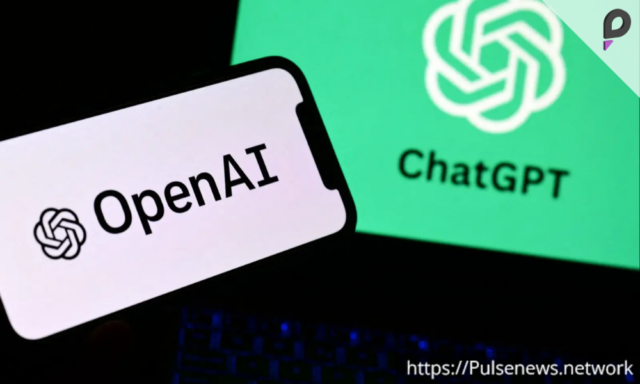OpenAI, the creator of ChatGPT, recently raised concerns that rivals, including those in China, leverage its work to rapidly develop their AI applications. This revelation highlights a significant issue within the tech industry as companies strive to protect their innovations.
Emergence of DeepSeek
This week, OpenAI’s standing as a leader in the AI field was challenged by the sudden launch of DeepSeek. A Chinese application that mimics the performance of ChatGPT at what appears to be a fraction of the cost. The rise of DeepSeek has caught the attention of industry leaders, leading Microsoft. A major investor in OpenAI, to investigate whether OpenAI’s data has been used without authorization.
Concerns from the White House
David Sacks, the newly appointed White House “AI and crypto czar,” voiced similar concerns. During a Fox News appearance, he suggested that DeepSeek may have utilized models developed by OpenAI to improve its performance through a process known as knowledge distillation. He indicated that there is substantial evidence supporting this claim, urging leading AI companies to take measures to prevent such practices in the future.
OpenAI has echoed these sentiments, stating that companies, particularly those in China, are continuously attempting to distill the models of leading US AI firms. The company emphasized the importance of collaborating with the U.S. government to protect its most advanced models as they move forward.
Questions Surrounding DeepSeek’s Practices
Naomi Haefner, an assistant professor of technology management at the University of St. Gallen, raised questions about the legitimacy of DeepSeek’s claims regarding the cost-effectiveness of its model training. She noted that if DeepSeek misappropriated significant amounts of data from OpenAI, the assertion of having trained its models cheaply could be misleading.
Crystal van Oosterom, an AI Venture Partner at OpenOcean, acknowledged that while DeepSeek has built upon publicly available research, the implications of “building on” the work of others in the AI field remain unclear. This is particularly relevant in an industry where accusations of violating intellectual property rights are common.
National Security Concerns
The emergence of DeepSeek has prompted US officials to evaluate the national security implications associated with the app. White House press secretary Karoline Leavitt mentioned that the National Security Council is looking into the potential consequences of DeepSeek’s rise. Additionally, US President Donald Trump’s recent comments highlighted that this situation should serve as a wake-up call for the American tech industry.
As a precaution, the US Navy has banned its personnel from using DeepSeek due to potential security and ethical concerns. Reports indicate that the Navy issued a warning email to its staff about the app’s origins and usage. Data safety experts have also cautioned users to be vigilant, given that DeepSeek collects large amounts of personal data and stores it on servers located in China.
Cybersecurity Issues
DeepSeek has reported being targeted by cyberattacks, claiming that it would temporarily limit registrations due to large-scale malicious attempts to breach its software. The company stated that these attacks have intensified recently, causing disruptions to its operations.
The Competitive Landscape of AI
The rise of DeepSeek has shaken America’s AI industry, especially given the perception that the US had a significant lead in this technological race. Many believed that trade restrictions on China’s access to high-end chips would solidify this advantage. However, DeepSeek’s rapid progress suggests that the competitive landscape is evolving.
Experts assert that while the US remains home to some of the largest chip manufacturers and retains advantages in AI technology, the specifics of how DeepSeek developed its model are still unclear. The future capabilities of this emerging competitor will depend on its ongoing development and the effectiveness of its strategies.
Conclusion
OpenAI concerns about Chinese rivals like DeepSeek using its work underscore the challenges faced by AI companies in safeguarding their innovations. As the landscape becomes more competitive, it is crucial for industry leaders and governments to collaborate on policies that protect intellectual property and ensure ethical practices in AI development. The situation serves as a reminder of the ongoing evolution in the tech industry and the need for vigilance in the face of emerging threats.











